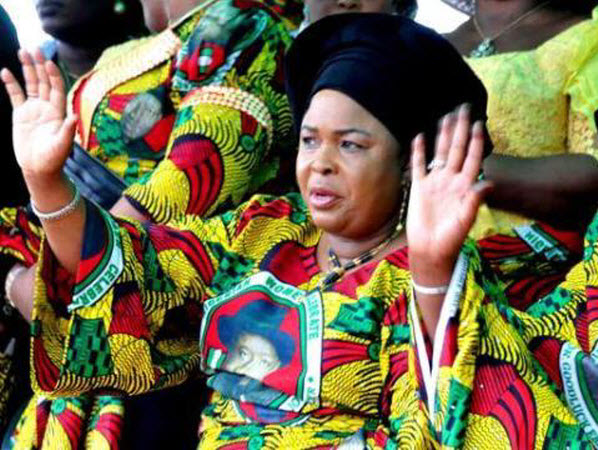There are no products in your shopping cart.
| 0 Items | £0.00 |

 FORMER first lady Dame Patience Jonathan has lost another major legal battle after the Supreme Court of Nigeria ruled against her and declared that she should forfeit the sum of N2.5bn ($6.9m) to the federal government.
FORMER first lady Dame Patience Jonathan has lost another major legal battle after the Supreme Court of Nigeria ruled against her and declared that she should forfeit the sum of N2.5bn ($6.9m) to the federal government.
Earlier this month, Dame Jonathan suffered a major setback that could result in her forfeiting $8.4m to the Economic and Financial Crimes Commission (EFCC) after Nigeria's Supreme Court upheld a judgement on a temporary seizure. On her case for the last four years, the EFCC said its investigation revealed that Dame Jonathan opened the Skye Bank account on February 7, 2013 and used it to warehouse the proceeds of crime.
Now, she appears to have suffered another loss after a five-man panel of the Supreme Court rejected the appeal by one of her companies Lawari Furniture, that the seized cash was legitimate earnings. In the lead judgment written by Justice Amiru Sanusi but read by Justice Sidi Bage, the court upheld the order of interim forfeiture made by a Lagos High Court on April 26, 2017, which was affirmed by the Court of Appeal on January 12, 2018.
In its ruling, the court rejected the appellant’s prayer to void Section 17 of the Advanced Fee Fraud Act and other Fraud related offences Act, on which the high court relied in issuing the order of interim forfeiture. In his supporting judgment, a member of the panel, Justice Ejembi Eko, observed that the substance of this appeal was similar to the one decided by the court on March 8 this year relating to the interim forfeiture of $8.4m.
Justice Eko said both appeals ought not to be split and assigned to different panels to avoid the risk of issuing conflicting judgments. He said he found nothing wrong with the provision of Section 17 of the Money Laundering Act, which he noted was the same as the provision in Section 29 of EFCC Act.
Other members of the panel, which included justices Ibrahim Tanko Muhammad, Mary Peter Odili and Kudirat Kekere-Ekun, agreed with the lead judgment. With this ruling, the EFCC is free to keep hold of the money.